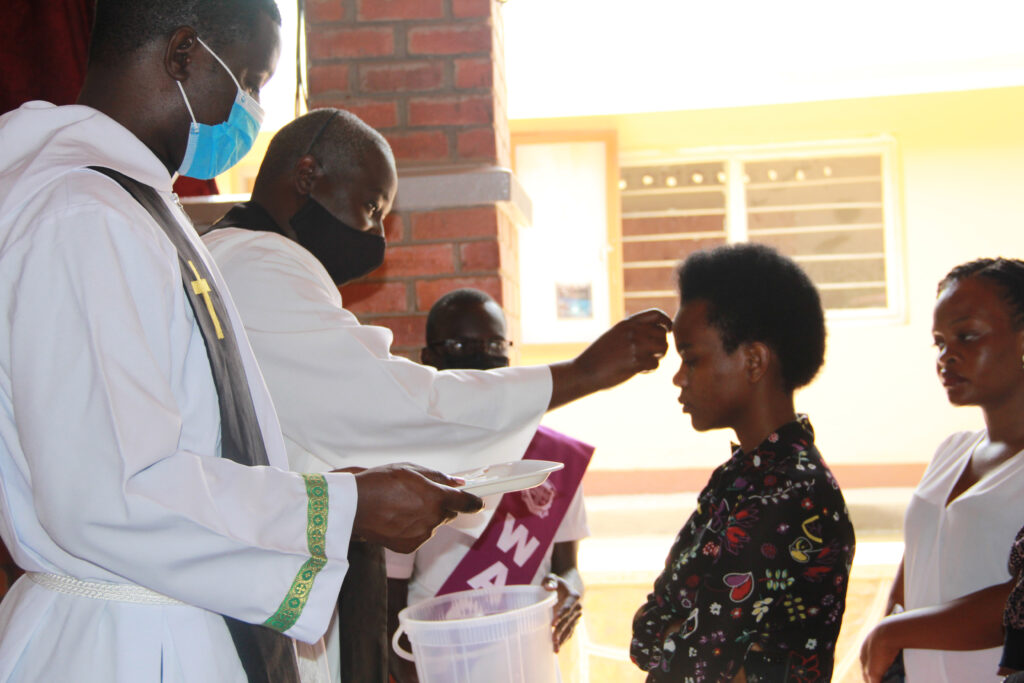By Muduku Derrick Brian
Kakembo Micheal, a 24-year-old Boda Boda rider based on a stage along Kayunga Road in Mukono is taking a nap on his bike in the afternoon. Clad in the trademark jacket that Boda riders in Uganda love to wear, I wonder how he can afford to keep himself so warm in such skyrocketing heat. I notice that his lips are cracked and dry. I decide to wake him up and I also realize that his eyes are red and teary. I start to imagine that he is probably sick. However, after engaging him in a casual conversation, he admits that he last had a meal the previous evening as he was observing the spiritual discipline of fasting and prayer.
Kakembo says that he decided to observe a total fast with no water and food because he cannot believe that he survived the Covid-19 lockdowns.
” Us the Boda riders were one of the most affected people in the lockdowns. Sometimes I just sit back and wonder how I survived without working,” he said.
Kakembo who is observing says that he is fasting with a prayer intention of thanking God for enabling him to survive in the lockdown.
Fasting comes with several challenges and Kakembo says that he has experienced them as well.” The major problem I face is working and yet I am not eating. In the afternoons, I feel weak but I still have to fast no matter what,” he said.
He adds that at times, he has been forced to eat during his fast and is haunted by the guilt of prematurely breaking his fast.
However, Kakembo says that he has managed to significantly save money during the fasting season as he has reduced spending since he has one meal in the evening.

Kalibala Andrew, a third-year student pursuing a Bachelors in Procurement and Logistics says he has failed to fast because of health concerns.” I have ulcers and if I don’t eat on time, they will worsen which can be very dangerous to my health,” he said.
Kalibala adds that the academic engagements also force him to constantly eat.” I engage my mind when I read and therefore, it can affect my studies if I don’t eat,” he said.
Rev. Canon. Eng. Paul Wasswa, the Chaplain of Uganda Christian University says that fasting is a vital component of Christianity.” It is a spiritual discipline where Christians go without food and water in the spirit of getting closer to the righteousness of Christ,” he said.
Wasswa says that some Christians engage in the total form of fasting where they don’t eat or drink entirely for the whole. However, he says that there is also partial fasting.” Here, people choose to forego what they love most without necessarily not eating food or drinking water. One can fast meat for example,” he said.
Given their academic engagements, Wasswa says that students should opt for partial fasting.” This kind of fasting enables you still eat and still observe the fast. They need to eat since they are engaging the mind,” he said.
Wasswa says that the University has a special program for the lent period under which fasting is observed.” There is a special lent service that is held in Nkoyoyo Hall every Wednesday,” he said.
Dr. Edward Kibikyo Mukooza, the Head of the Department of the Faculty of Public Health says that most students are in a good position to practice fasting.” They can fast because they are generally healthy. They may not be at the peak of their lives but they have fewer health conditions than older age groups,” he said.
Mukooza says that fasting is to a certain extent a healthy practice.” Some research evidence came out recently showing that when people fast for a limited period, it is good for their health,” he said.
Mukooza adds that many youths eat more than they need and therefore, fasting teaches them to practice self-control which ensures that they maintain good body weight.
However, he advises students with health ailments not to engage in fasting. “If one has peptic ulcers and they fast, the ailment will worsen. Therefore, people who are sick should follow the doctor’s advice and only fast after proper recovery,” he said.
Mukooza says that during the fast, students are encouraged to eat meals with a balanced diet that has proteins, carbohydrates, fruits, and vegetables.
He adds that students should desist from eating tinned or processed foods and drink a lot of water during the fasting period. He encourages students who are fasting to drink less energy and sugary drinks.


